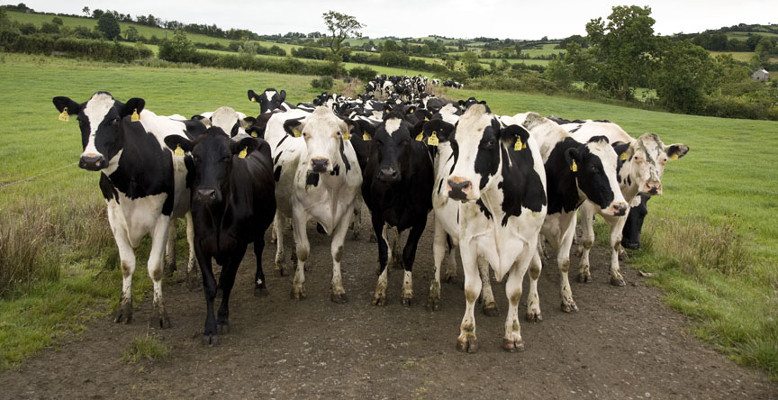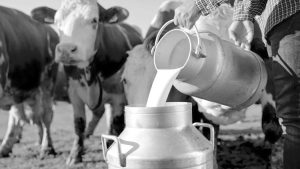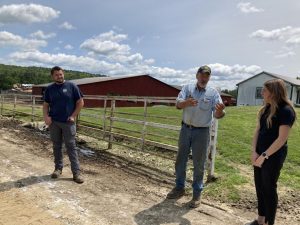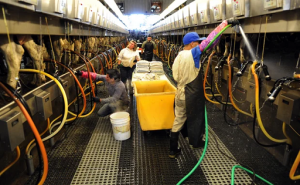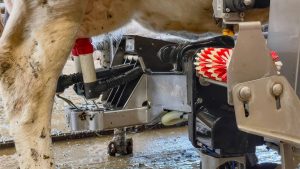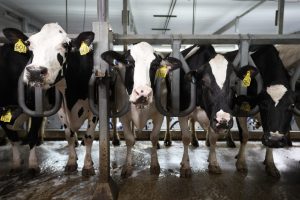
Pickups lined the streets in downtown Utica, a good sign that farmers were meeting nearby.
The event that drew more than 30 farmers to town on a melting March day was a meeting to learn more about how they could work together to market their products through the National Farmers Organization.
Anthony Loken, a 29-year-old Rollingstone dairy farmer, organized the meeting at Brewskie’s Bar and Grill, inviting neighbors, college friends and speakers.
Loken graduated from Northeast Iowa Community College with a dairy science degree and has been milking for 13 years. He has 80 cows.
Together, the assembled group milk 3,820 cows and produce 8,225,000 pounds of milk per year.
“We need to start working together,” Loken told his neighbors.
He said his generation has listened to the older generation say for too long that it can’t be done.
“As the younger generation, I think we really need to start getting ourselves educated on all this stuff,” Loken said. “We’re the next generation to lead this country … not just our farms.”
“As the younger generation, I think we really need to start getting ourselves educated on all this stuff,” Loken said. “We’re the next generation to lead this country … not just our farms.”
Loken said farmers need to start asking their cooperatives questions. How are they working for a farmer’s best interests? Perhaps the cooperative’s CEO salary should be tied to the milk price, he said. If farmers own the cooperative, how come they aren’t paying themselves a cost of production plus profit?
Instead, they are trying to make ends meet on $9 milk with a USDA estimated cost of production at $30 per hundredweight.
“I’m just getting sick of this crap … getting paid this price,” Loken said.
Farmers don’t have to take the price they’re offered. They can join together and use the Capper-Volstead Act to negotiate for better prices, said University of Minnesota emeritus professor Richard Levins.
The secret to maintaining independence is the Capper-Volstead Act, Levins said.
The $13 per hundredweight difference between today’s $10 milk and last year’s $23 didn’t evaporate. It’s just not going to farmers.
“This is horrible what’s happening to you guys,” Levins said.
This generation has fewer options for marketing milk than and the federal government is less likely to help farmers, he said.
You can now read the most important #news on #eDairyNews #Whatsapp channels!!!
🇺🇸 eDairy News INGLÊS: https://whatsapp.com/channel/0029VaKsjzGDTkJyIN6hcP1K
